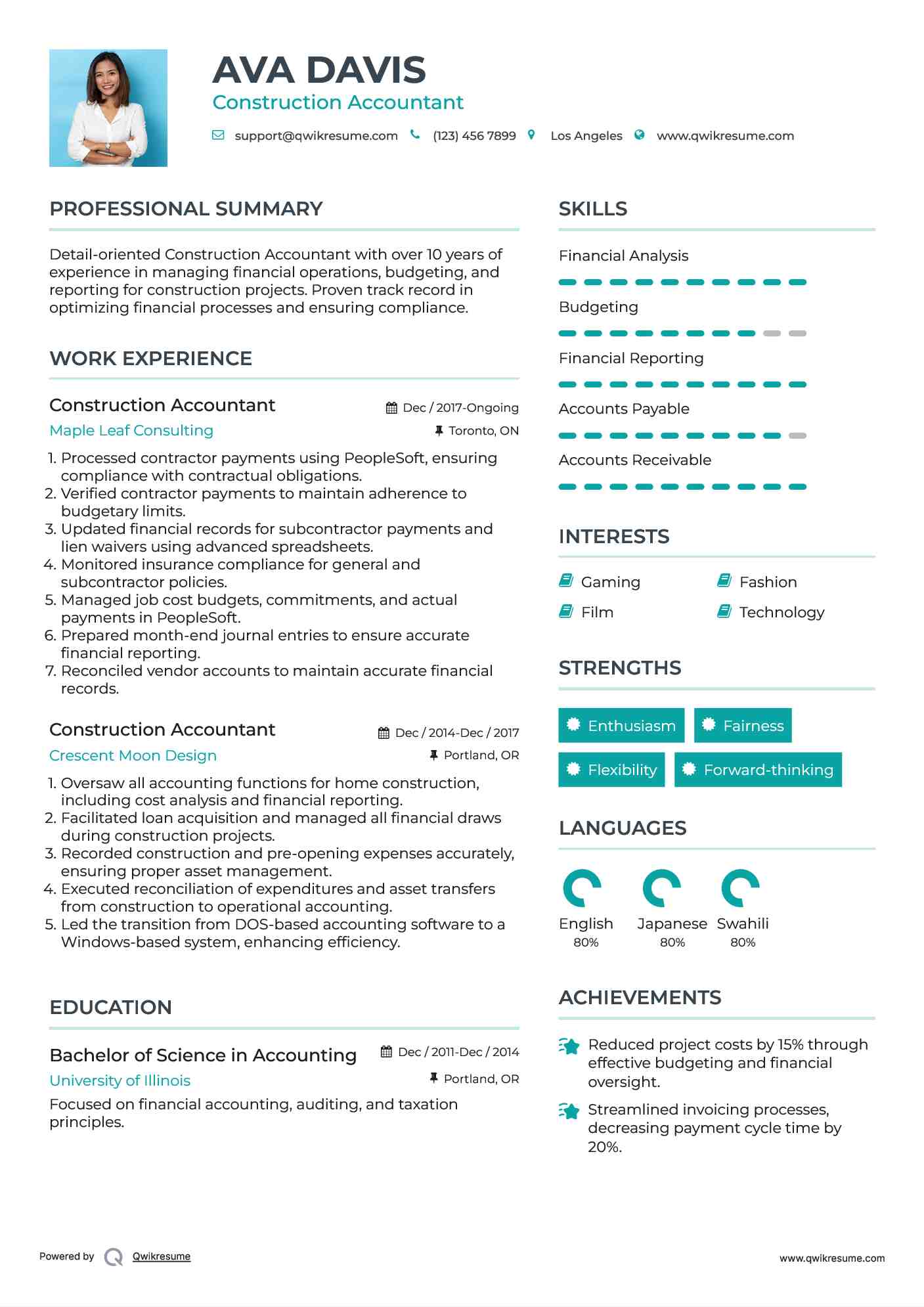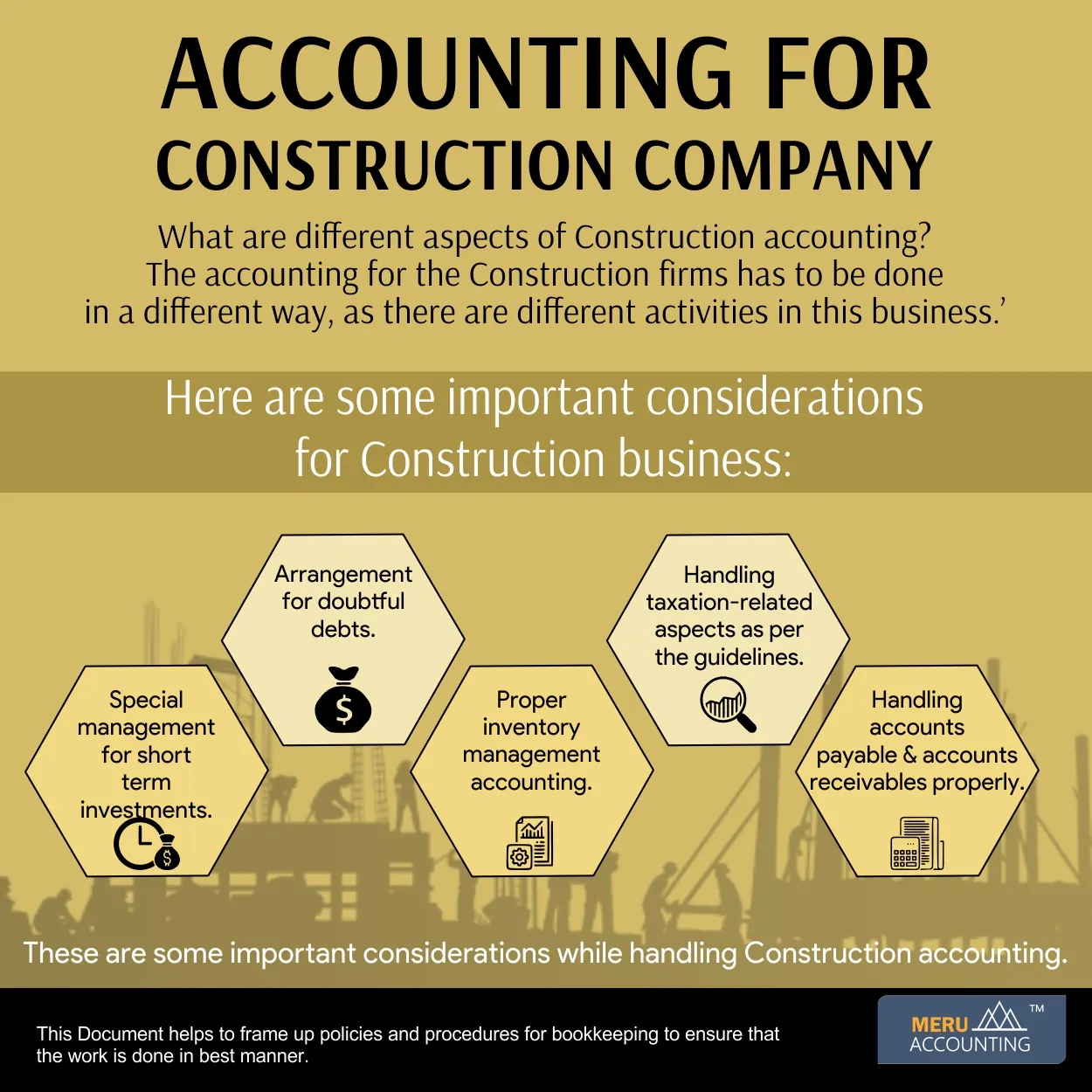4 Easy Facts About Pvm Accounting Shown
4 Easy Facts About Pvm Accounting Shown
Blog Article
Pvm Accounting Can Be Fun For Everyone
Table of ContentsSome Known Factual Statements About Pvm Accounting Unknown Facts About Pvm AccountingEverything about Pvm AccountingAll about Pvm AccountingIndicators on Pvm Accounting You Should KnowGetting The Pvm Accounting To WorkIndicators on Pvm Accounting You Need To KnowGetting The Pvm Accounting To Work
One of the primary reasons for applying accounting in building and construction jobs is the requirement for financial control and management. Construction jobs typically require significant financial investments in labor, products, equipment, and various other sources. Correct audit permits stakeholders to keep track of and manage these economic sources efficiently. Accountancy systems give real-time understandings right into job costs, profits, and profitability, making it possible for project managers to without delay recognize potential concerns and take restorative activities.
Audit systems allow companies to check capital in real-time, making sure enough funds are readily available to cover costs and fulfill monetary obligations. Efficient capital monitoring helps stop liquidity dilemmas and keeps the task on the right track. https://www.figma.com/design/pEGqwVkdxaWH6r5PgQiEyD/Untitled?node-id=0%3A1&t=BbE3XCPdNiLo7e15-1. Construction projects are subject to various monetary requireds and coverage requirements. Proper accounting makes sure that all monetary purchases are recorded accurately and that the task abides by bookkeeping standards and legal contracts.
A Biased View of Pvm Accounting
This reduces waste and enhances project efficiency. To much better recognize the relevance of accounting in building, it's also necessary to compare construction monitoring accounting and task management bookkeeping. primarily focuses on the financial aspects of the building and construction firm all at once. It deals with general economic control, budgeting, cash flow management, and monetary coverage for the entire company.
It focuses on the financial elements of specific building tasks, such as cost evaluation, price control, budgeting, and cash circulation administration for a particular task. Both sorts of audit are necessary, and they enhance each other. Building and construction management bookkeeping ensures the company's financial health and wellness, while job monitoring accounting guarantees the financial success of specific jobs.
Some Known Incorrect Statements About Pvm Accounting

A vital thinker is needed, who will certainly deal with others to choose within their locations of responsibility and to surpass the locations' job procedures. The placement will interact with state, university controller staff, university department staff, and scholastic scientists. He or she is anticipated to be self-directed once the preliminary understanding curve relapses.
The Basic Principles Of Pvm Accounting
A Building Accountant is accountable for taking care of the monetary elements of building jobs, consisting of budgeting, expense tracking, financial coverage, and conformity with regulatory demands. They function very closely with project managers, service providers, and stakeholders to ensure precise monetary documents, price controls, and timely payments. Their proficiency in building audit concepts, task costing, and monetary analysis is necessary for effective monetary monitoring within the building and construction industry.

The 15-Second Trick For Pvm Accounting
Pay-roll taxes are taxes on a worker's gross salary. The incomes from payroll taxes are utilized to money public programs; as such, the funds collected go straight to those programs rather of the Internal Profits Service (IRS).
Note that there is an added 0.9% tax obligation for high-income earnersmarried taxpayers who transform $250,000 or solitary taxpayers making over $200,000. There is no company suit for this added tax. Federal Joblessness Tax Act (FUTA). Incomes from this tax obligation go toward federal and state joblessness funds to assist employees who have actually lost their tasks.
See This Report on Pvm Accounting
Your deposits have to be made either on a monthly or semi-weekly schedulean political election you make prior to each schedule year. Regular monthly payments. A regular monthly settlement has to be made by the 15th of the following month. Semi-weekly settlements. Every various other week down payment days depend on your pay schedule. If your payday drops on a Wednesday, Thursday or Friday, your down payment schedules Wednesday of the adhering to week.
So care for your obligationsand your employeesby making complete payroll tax obligation repayments learn this here now promptly. Collection and payment aren't your only tax responsibilities. You'll additionally need to report these amounts (and other information) on a regular basis to the internal revenue service. For FICA tax (as well as government revenue tax), you must complete and file Kind 941, Company's Quarterly Federal Tax obligation Return.
The Buzz on Pvm Accounting

Every state has its own joblessness tax (called SUTA or UI). This is due to the fact that your firm's market, years in company and unemployment history can all determine the percent utilized to determine the quantity due.
The Buzz on Pvm Accounting
The collection, remittance and coverage of state and local-level tax obligations depend on the federal governments that impose the tax obligations. Clearly, the subject of payroll tax obligations includes plenty of relocating components and covers a vast variety of accounting understanding.
This web site makes use of cookies to improve your experience while you navigate through the site. Out of these cookies, the cookies that are classified as necessary are kept on your browser as they are necessary for the working of fundamental performances of the website. We additionally make use of third-party cookies that help us assess and recognize just how you use this site.
Report this page